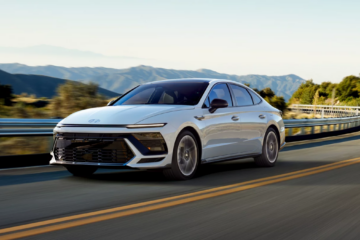Although national parks attract millions of visitors from near and far for their unique landscapes, they can also be a source of danger or even tragedy for visitors who underestimate the strength of nature.
Yellowstone regularly sees incidents in which visitors get dangerously close to wildlife — either accidentally or by disregarding the rule to keep at least 25 yards away — and then get mauled or gored. Parks located in the southern part of the country and can reach extreme temperatures, including Death Valley and the Grand Canyon, regularly warn of heat exposure that can lead to tragic outcomes when travelers get lost or do not bring adequate water.
🎁 Buy 1 Year and Get 1 Year FREE on TheStreet Pro. Act now before it’s gone ⏰
Going to a national park for winter activities? Be aware of changing conditions
With visitors often coming in to do activities such as skiing and hikes in areas with equally extremely low temperatures, the winter period comes with its range of dangers.
Personal injury law firm John Foy and Associates ranked national parks by the number of deaths that occurred between Nov. 1 and Feb. 28 from 2007 to 2023 — at an average of 12.19 deaths a year, California’s Sequoia and Kings Canyon National Parks came out on top as the country’s most dangerous to visit in the winter.
Related: National park monument becomes latest to ban certain type of visitors
The grim statistic comes as a result of both the low temperatures — in some cases 0 degrees Fahrenheit or -17 Celsius — that the park can reach in the winter, as well as the icy road and trail conditions that can cause everything from car crashes to avalanches in which travelers get trapped.
“Whether you are skiing a groomed trail in a developed area or venturing into the backcountry, please remember that you are traveling in wilderness with all its risks: unpredictable wildlife, changing weather conditions, deep snow, and open streams,” the National Park Service (NPS) warns visitors to Sequoia & Kings Canyon. “Have fun, but be prepared for any situation and know the limits of your ability.”
More on travel:
Another National Park just made it more difficult for you to visitNational Park visitor becomes first to get arrested for this in 2024The Airbnb/hotel debate is getting very tiresome
National parks that come just behind Sequoia & Kings Canyon in the ranking include Mount Rainier in Washington state, with an average of 8.55 deaths, and Lake Mead National Recreation Area, with an average of 6.23. Both parks attract visitors interested in snow sports and other winter activities but can reach extreme temperatures during the coldest times of the year.
A pair of hikers trod through a blanket of fresh snow along Big Trees Trail in Sequoia National Park.
These national parks have the highest accident rates in the winter
Lake Mead National Recreation Area in Nevada topped the list on a 2023 ranking looking at incidents from 2014 to 2021 with drowning on the namesake reservoir being by far the most common cause of death. Other parks to land in the John Foy and Associates ranking’s top ten by death rate include Death Valley and Grand Canyon as well as Yosemite and Mojave in California and Cape Hatteras National Seashore in North Carolina and Big South Fork National River and Recreation Area in Tennessee.
“Winter storms and thunderstorms can move in quickly,” the NPS writes of the latter park. “Hypothermia and lightning have both taken lives here. Rain can cause flash floods many miles away, so even if the sky overhead is clear, be careful around creek beds and the Rio Grande during the rainy season.”
Related: The 10 best investing books (according to stock market pros)


